A Latino Memoir
Exploring Identity, Family and the Common Good
Gerald Poyo

A Latino Memoir is made possible through a grant from the City of Houston through the Houston Arts Alliance.
Recovering the past, creating the future
Arte Pblico Press
University of Houston
4902 Gulf Fwy, Bldg 19, Rm 100
Houston, Texas 77204-2004
Cover design by Mora Des!gn
Names: Poyo, Gerald Eugene, 1950- author.
Title: A Latino memoir : exploring family, identity and the common good / Gerald E. Poyo.
Description: Houston, Texas : Arte Pblico Press, [2019] | Summary: In a bumpy, anxiety- producing plane ride across the Straits of Florida to Cuba in 1979, graduate student Gerald Poyo knew his life would either end that day in the World War II-era prop airplane or change forever. He survived the trip, and his ten-day visit solidified his academic research and confirmed his career as a history professor. In this wide-ranging examination of his relatives migrations in the Western Hemispherethe Americasover five generations, Poyo uses his training as a historian to unearth his familys stories. Beginning with his great-great grandfathers flight from Cuba to Key West in 1869, this is also about the loss of a beloved homeland. His father was Cuban; his mother was from Flint, Michigan. Poyo himself was six months old when his parents took him to Bogot, Colombia. He celebrated his eighth birthday in New Jersey and his tenth in Venezuela. He was 12 when he landed in Buenos Aires, where he spent his formative years before returning to the United States for college. My heart belonged to the south, but somehow I knew I could not escape the north, he writes. Transnationalism shaped his life and identity. Divided into two parts, the first section traces his parents and ancestors as he links their stories to impersonal movements in the worldSpanish colonialism, Cuban nationalism, United States expansionismthat influenced their lives. The second half explores how exile, migration and growing up a hemispheric American, a borderless American impacted his own development and stimulated questions about poverty, religion and relations between Latin America and the United States. Ultimately, this thought-provoking memoir unveils the universal desire for a safe, stable life for ones familyProvided by publisher.
Identifiers: LCCN 2019029044 (print) | LCCN 2019029045 (ebook) | ISBN 9781558858794 (paperback) | ISBN 9781518505676 (epub) | ISBN 9781518505683 (kindle edition) | ISBN 9781518505690 (adobe pdf)
Subjects: LCSH: Poyo, Gerald Eugene, 1950- | Poyo, Gerald Eugene, 1950Family. | Poyo family. | Poyo, Gerald Eugene, 1950TravelAmerica. | Hispanic Americans--Biography. | Hispanic American families. | Transnationalism. | United StatesEmigration and immigrationSocial aspects. | Latin AmericaEmigration and immigrationSocial aspects.
Classification: LCC CT275.P769 A3 2019 (print) | LCC CT275.P769 (ebook) | DDC 973/.0468092dc23
LC record available at https://lccn.loc.gov/2019029044
LC ebook record available at https://lccn.loc.gov/2019029045
 The paper used in this publication meets the requirements of the American National Standard for Information SciencesPermanence of Paper for Printed Library Materials, ANSI Z39.48-1984.
The paper used in this publication meets the requirements of the American National Standard for Information SciencesPermanence of Paper for Printed Library Materials, ANSI Z39.48-1984.
2019 by Gerald E. Poyo
Printed in the United States of America
19 20 21 22 5 4 3 2 1
For Isabella, Gabriela and Alexandra
Table of Contents
Chapter 1
Bygone Generations
Chapter 2
Struggled in Radical Ways
Chapter 3
A Sense of Ambiguity
Chapter 4
Better Forgotten
Chapter 5
Aligning North
Chapter 6
Americanization
Chapter 7
Of Economic Necessity
Chapter 8
An Unexpected Turn
Chapter 9
Corporate Foot Soldiers
Chapter 10
Children Fuse Cultures Easily
Chapter 11
The World Isnt Fair
Chapter 12
Fixing the World
Chapter 13
Turmoil of Ethnic Politics
Chapter 14
Pressure Cooker
Chapter 15
Pilgrimage
Chapter 16
Inscribing a Maligned People
Chapter 17
No Longer Home
Chapter 18
The Worst of Times
Chapter 19
Bread, Spirit and Community
Chapter 20
We Shared a Sign of Peace
Acknowledgements
A Latino Memoir: Exploring Family, Identity and the Common Good reflects a lifetime of personal and professional inquiry, my family and our history, and many who inspired me along the way. Some of these people are characters in the text, but are only a fraction of those who befriended, taught and otherwise influenced me. There are too many to name, but I do want to acknowledge those who had a special hand in helping move this manuscript along to publication. My father, Sergio, Uncle Jos and especially Uncle Jorge shared many stories. The youngest of the brothers, Uncle Ernesto, died very young but his passing affected me in existential ways that I understood only years later. My brother Sergio spent time helping me remember, as did siblings Cindy and Jeffrey. Four colleagues and friends took time from their busy lives to read early drafts and advised me in important ways. Dan Bjork read the earliest draft and judged it worth continuing. Later, Antonia Castaeda reminded me of the critical need to always keep gender in mind and urged me to keep the women in the forefront. Arturo Madrid, who wrote an extraordinarily moving memoir, insisted I reexamine the text with an eye to making the story explicitly my own. As a historian, I have always written in the third person, and the shift to first person memoir was hesitant and awkward at first. I needed some pushing. Chris Ruud, a medical doctor and diligent reader of what he refers to as cracking good stories, gave me the confidence to believe that my story could be one of those. I also thank Miryam Bujanda, whose unending support for my work gives me time and inspiration to get it done. Interested in publishing with Arte Pblico Press, I sent the manuscript straight to Nicols Kanellos, knowing he would give it a thorough and critical reading. After the press accepted the manuscript, Kanellos skillful edits transformed a text with too much historical background and detail into a book more friendly to a general reading public. I also appreciate the work of Gabriela Baeza Ventura and the entire Arte Pblico editoral team.
Introduction
This is a Latino story, in the broadest sense. It narrates my familys migrations over five generations in the Western Hemisphere, in the Americas. It is a story of a familys lossthe loss of a much beloved Cuban homeland over several generationsbut also a story of new places and a US Latino destination. It links individual lives with the impersonal historical forces at work in the world. My family moved and adapted and, more than once, integrated into unfamiliar economic, social and cultural worlds. Transnational experiences formed us.
The Poyos lived under Spanish colonialism, embraced Cuban nationalism as a central purpose in their lives, experienced the realities of United States expansionism into their homeland and attempted to make sense of ideological debates about nationalism, capitalism, socialism, communism and religion. Some lived with idealism, while others lived more pragmatically to survive. As exiles, but also as migrants, they experienced want and privilege. Family members crossed borders, traversed the seas and landed in alien places where they reinvented themselves and thought about their lives in different ways. They combined cultures and religious traditions, changed nationalities, became bilingual, defended diverse political perspectives and shifted class identities. In exploring the experiences of each generation, this story reveals a familys constant search for security, stability and existential comfort.



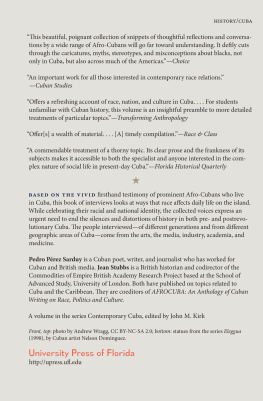
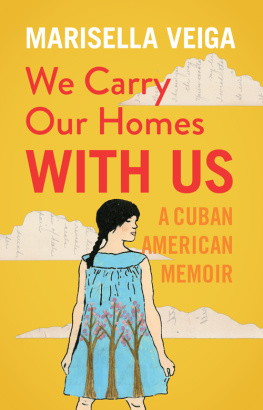
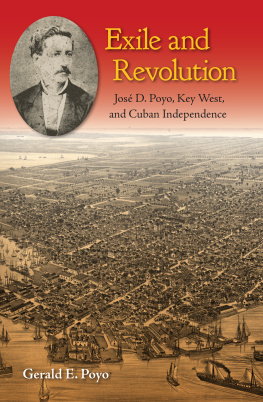
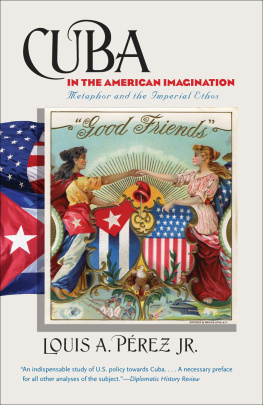
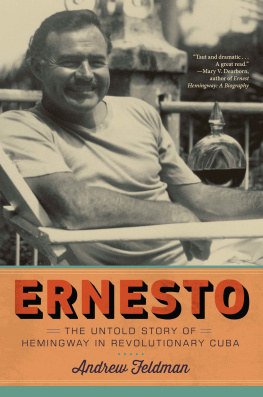
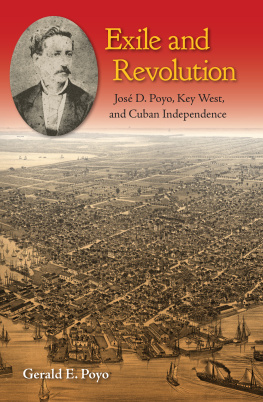
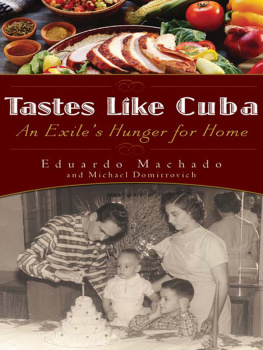
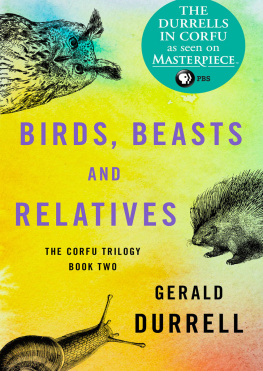
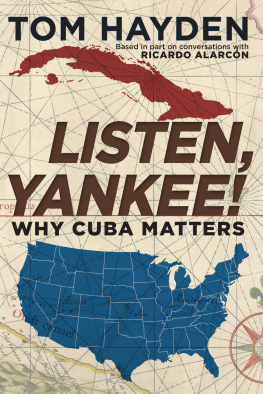
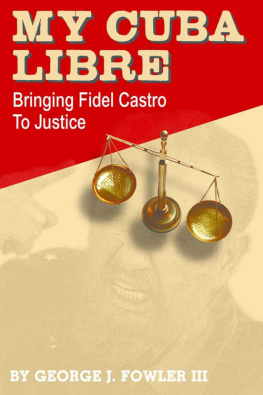

 The paper used in this publication meets the requirements of the American National Standard for Information SciencesPermanence of Paper for Printed Library Materials, ANSI Z39.48-1984.
The paper used in this publication meets the requirements of the American National Standard for Information SciencesPermanence of Paper for Printed Library Materials, ANSI Z39.48-1984.